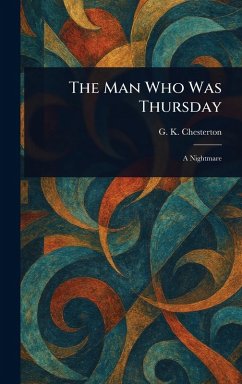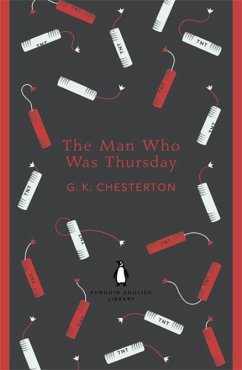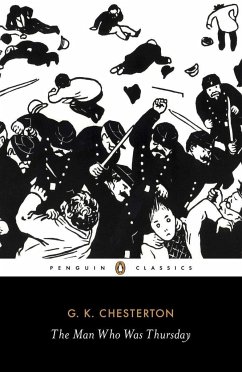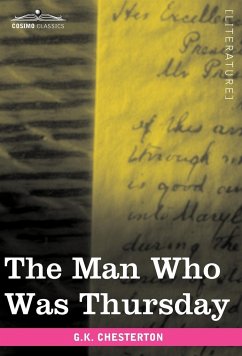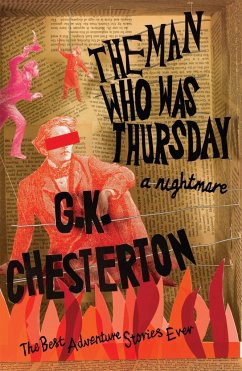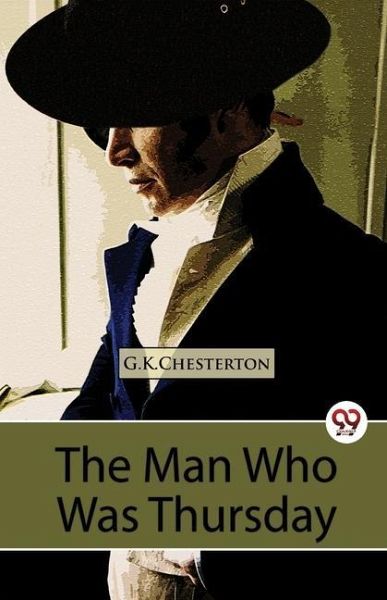
The Man Who Was Thursday A Nightmare

PAYBACK Punkte
6 °P sammeln!
The Man Who Was Thursday is a thriller novel written by English author G.K. Chesterton and released in 1908. The book is also sub-titled A Nightmare, an allegory about the threat of anarchy in turn-of-the-century London that combines elements of mystery, comedy, farce, and humor. This book has a really intriguing premise about hidden anarchists, a shadowy police organization, and a game of hide-and-seek that begins as a spy narrative. There are hints of philosophical musings pretty early on, but they don't really take off until later in the novel. Seven anarchists identify as the names of Week...
The Man Who Was Thursday is a thriller novel written by English author G.K. Chesterton and released in 1908. The book is also sub-titled A Nightmare, an allegory about the threat of anarchy in turn-of-the-century London that combines elements of mystery, comedy, farce, and humor. This book has a really intriguing premise about hidden anarchists, a shadowy police organization, and a game of hide-and-seek that begins as a spy narrative. There are hints of philosophical musings pretty early on, but they don't really take off until later in the novel. Seven anarchists identify as the names of Weekday in this surreal psychological detective novel. The main character of this novel is chosen for the position of "Thursday" on the Anarchist Council. But, will he get this position? Is he going to win or lose? To get answers to these questions, readers should go through ''The man who was Thursday''.





